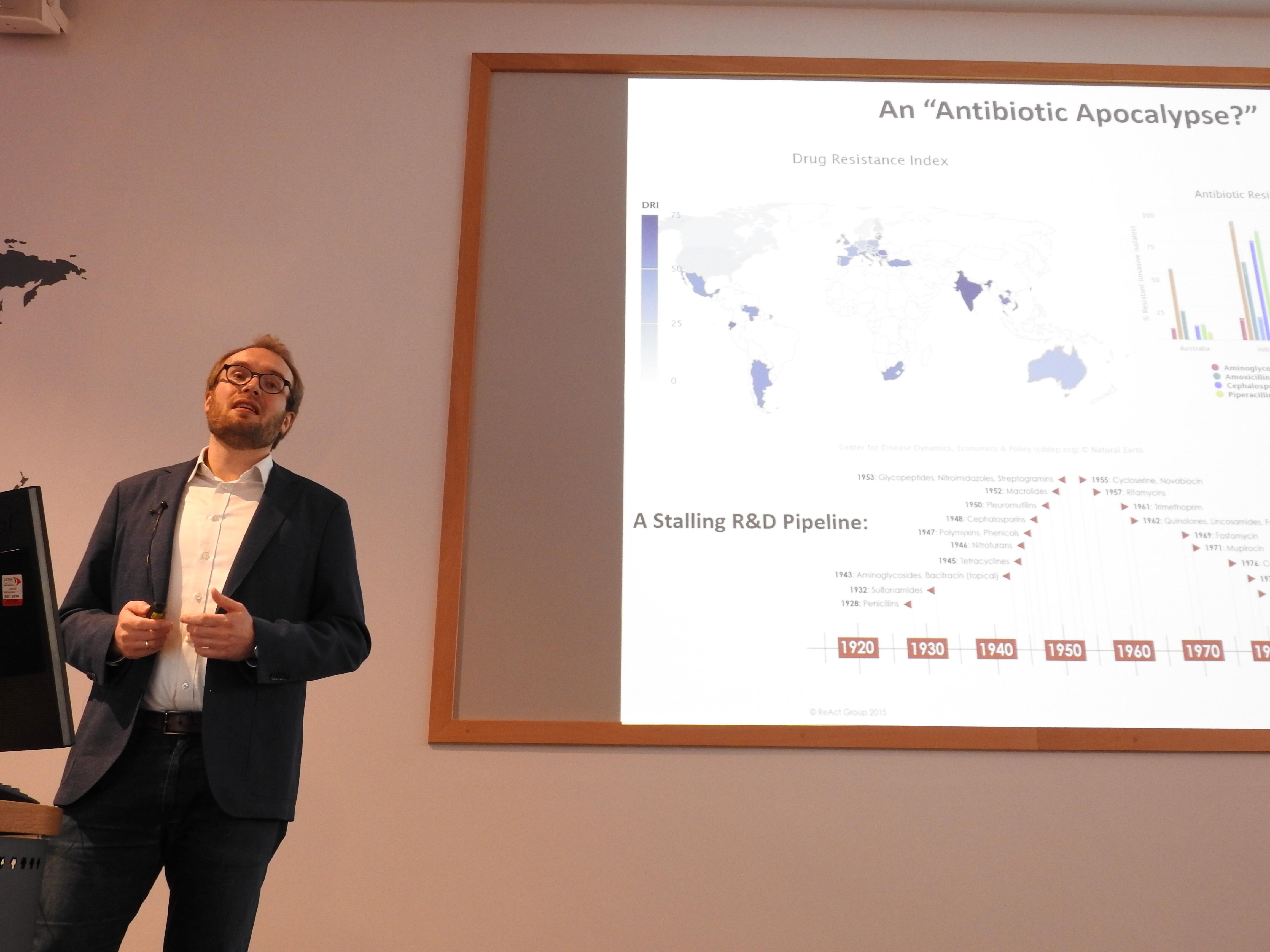
In 1935, the marketing of Prontosil by Bayer marked the opening of a new era of mass-produced antimicrobials. Over the next decades, cheap antimicrobials not only revolutionised the pharmaceutical sector but also acquired infrastructural importance in global medicine and food production. This infrastructure proved fragile.
As early as the 1910s, researchers had observed that microbes could develop “drug fastness” (antimicrobial resistance) to organoarsenic compounds. Since then, regulators around the world have attempted to develop frameworks that would allow them to harness antimicrobials’ benefits whilst containing AMR risks. The seminar reconstructs the past 85 years of antimicrobial use and resistance and highlights some of the reasons why regulators and practitioners have so far failed to develop effective global stewardship frameworks.
Claas Kirchhelle is a lecturer of medical history at University College Dublin (Wellcome University Award) and a fellow at the Oxford Martin School. His research addresses the global history and current context of antibiotic use, regulation, and resistance as well as the history of epidemiological surveillance and microbial culture collections.